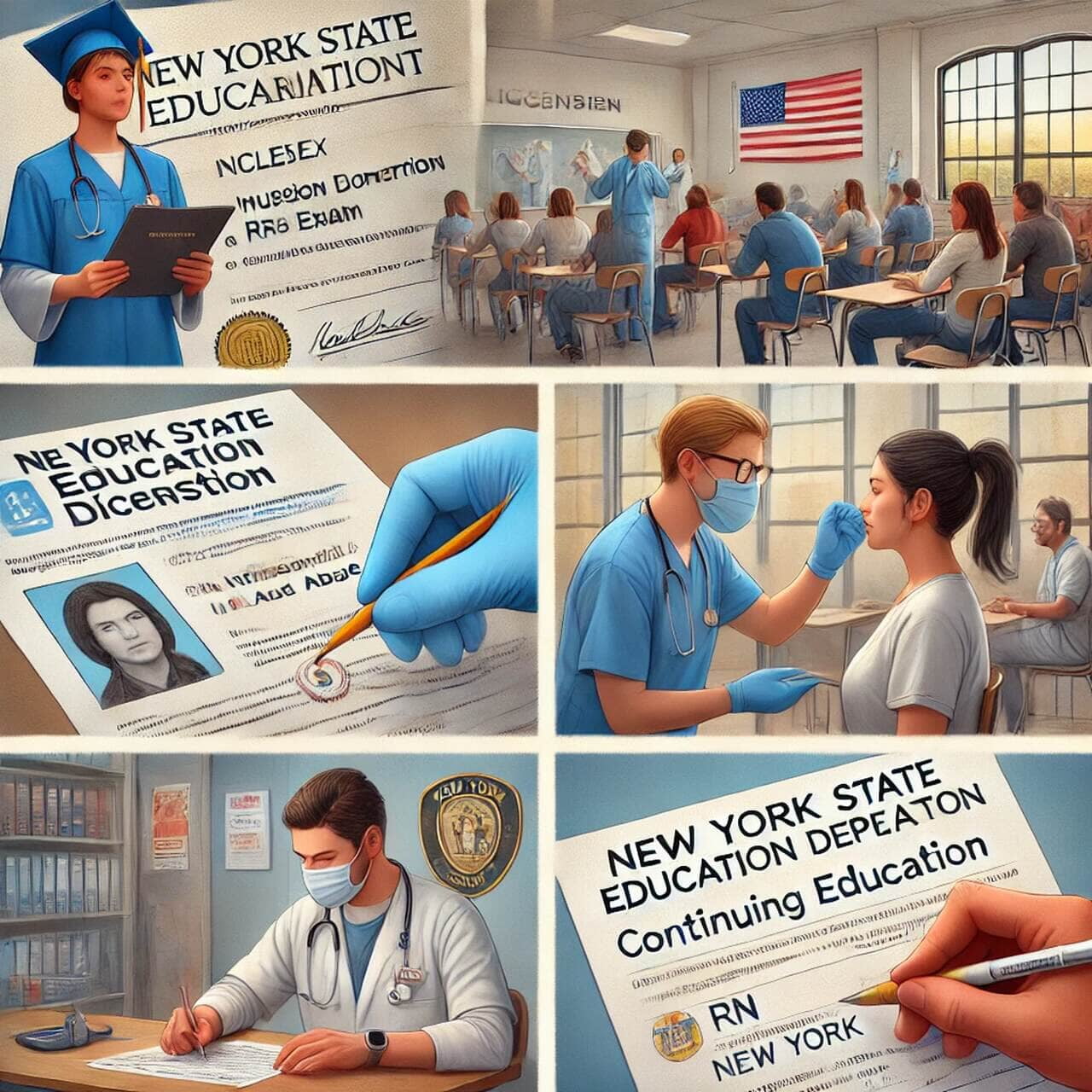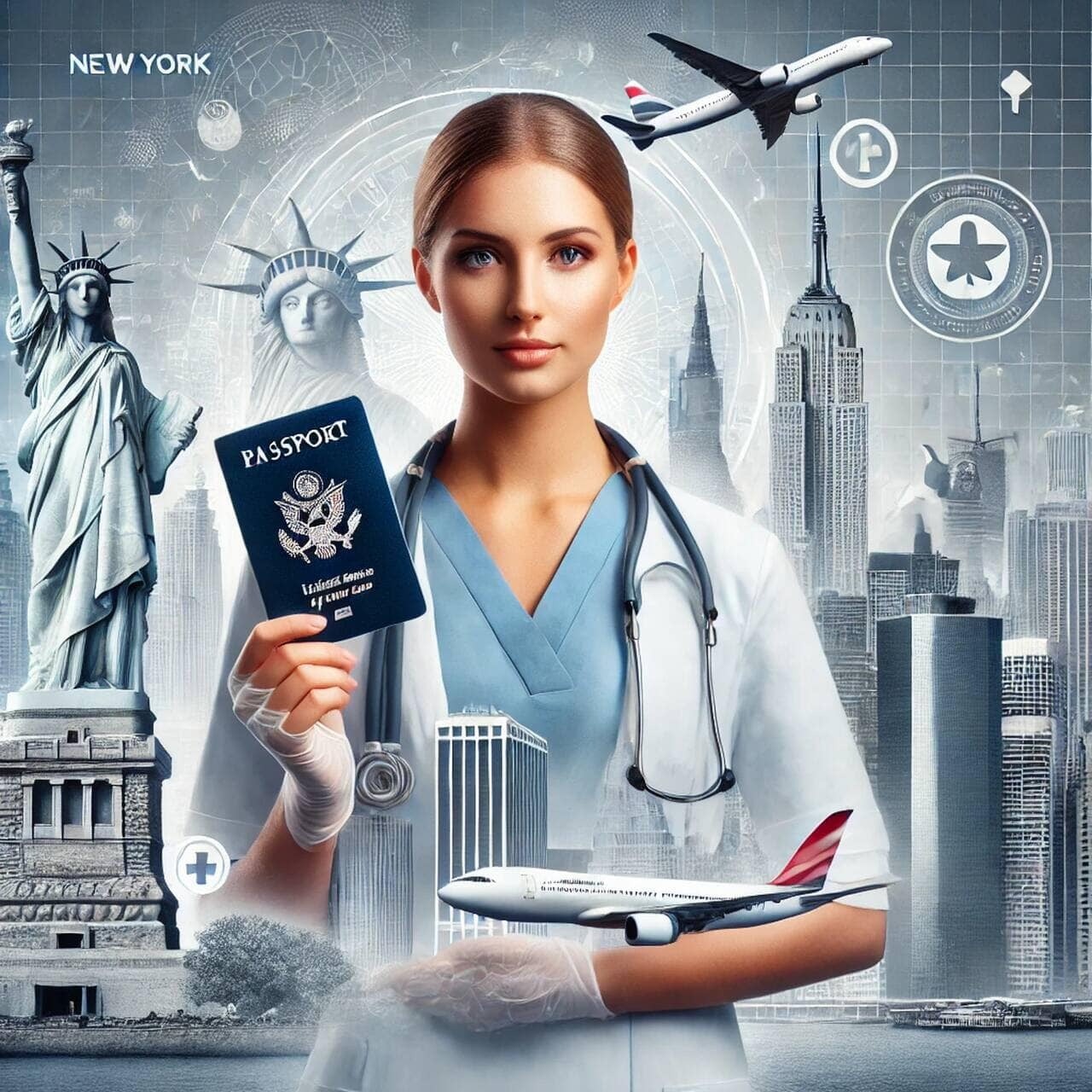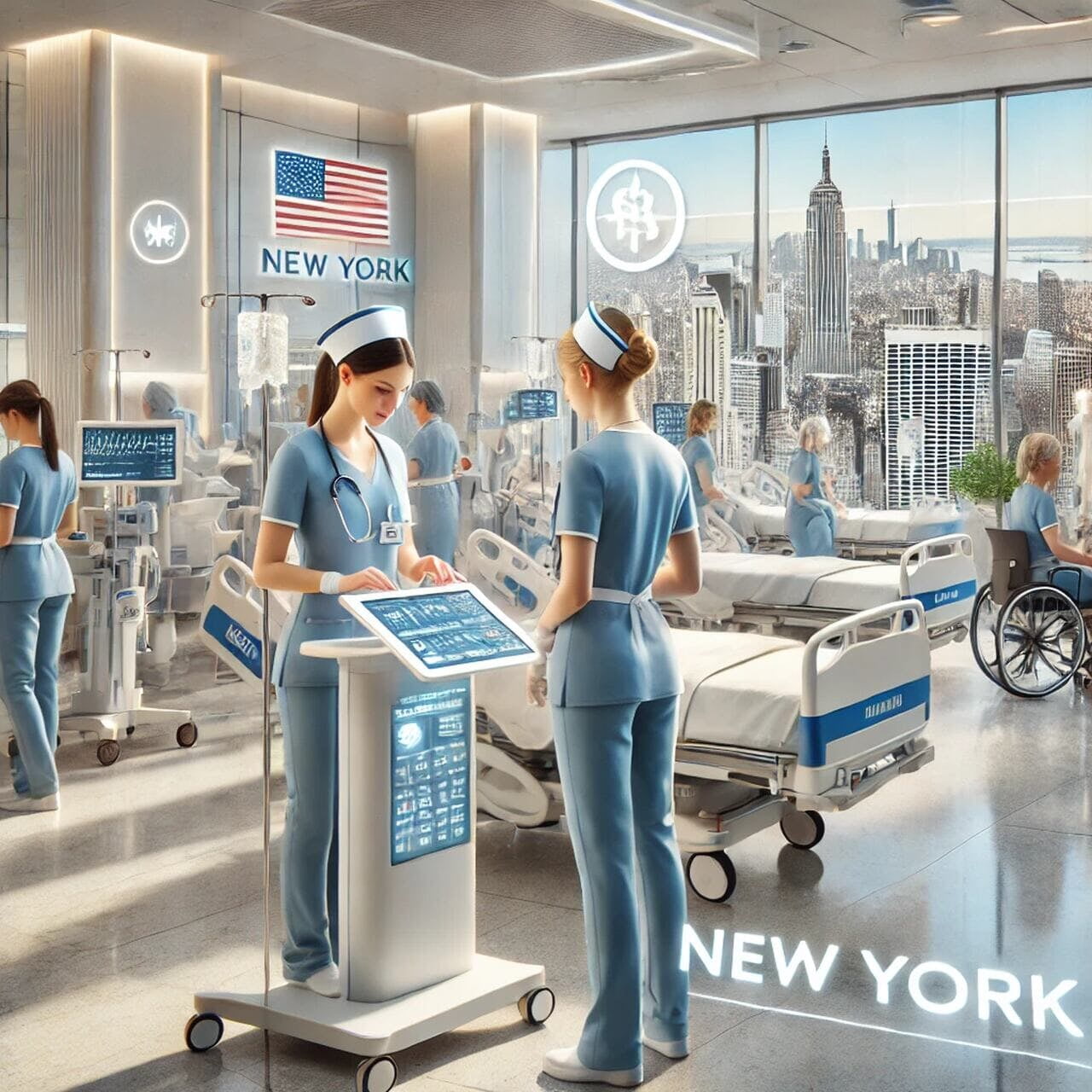
1. Introduction to Nursing in New York for European Nurses
The nursing profession in New York offers European nurses a wealth of opportunities, from advanced clinical roles to leadership positions. However, transitioning to work in the U.S. healthcare system requires a solid understanding of the differences between European and U.S. nursing practices, as well as navigating the specific requirements for licensure in New York.
The nursing profession in New York offers European nurses a wealth of opportunities, from advanced clinical roles to leadership positions. However, transitioning to work in the U.S. healthcare system requires a solid understanding of the differences between European and U.S. nursing practices, as well as navigating the specific requirements for licensure in New York.
2. Understanding the U.S. Nursing System
The U.S. healthcare system is complex, with a strong emphasis on specialized care and advanced practice roles for nurses. Registered Nurses (RNs) in the U.S. are highly valued for their expertise in patient care, clinical decision-making, and interdisciplinary collaboration. European nurses must familiarize themselves with the scope of practice, regulatory environment, and healthcare delivery models in the U.S.
The U.S. healthcare system is complex, with a strong emphasis on specialized care and advanced practice roles for nurses. Registered Nurses (RNs) in the U.S. are highly valued for their expertise in patient care, clinical decision-making, and interdisciplinary collaboration. European nurses must familiarize themselves with the scope of practice, regulatory environment, and healthcare delivery models in the U.S.
3. Eligibility Requirements for European Nurses
To work as an RN in New York, European nurses must meet several eligibility requirements:
- Basic Eligibility Criteria: A recognized nursing qualification from a European country, equivalent to a U.S. nursing degree.
- Educational Equivalency: Your nursing education must be evaluated to ensure it meets U.S. standards.
- Language Proficiency: Proficiency in English is essential, often demonstrated through exams like TOEFL or IELTS.
To work as an RN in New York, European nurses must meet several eligibility requirements:
- Basic Eligibility Criteria: A recognized nursing qualification from a European country, equivalent to a U.S. nursing degree.
- Educational Equivalency: Your nursing education must be evaluated to ensure it meets U.S. standards.
- Language Proficiency: Proficiency in English is essential, often demonstrated through exams like TOEFL or IELTS.
4. Educational and Credential Evaluation
One of the first steps is to have your European nursing credentials evaluated to determine if they are equivalent to U.S. standards:
- Credential Evaluation Process: This involves submitting your academic and professional qualifications to a recognized credential evaluation agency.
- Recognized Agencies: The Commission on Graduates of Foreign Nursing Schools (CGFNS) is a primary agency for credential evaluation.
- Steps to Verify Qualifications: Submit your transcripts, syllabi, and professional qualifications for review.
One of the first steps is to have your European nursing credentials evaluated to determine if they are equivalent to U.S. standards:
- Credential Evaluation Process: This involves submitting your academic and professional qualifications to a recognized credential evaluation agency.
- Recognized Agencies: The Commission on Graduates of Foreign Nursing Schools (CGFNS) is a primary agency for credential evaluation.
- Steps to Verify Qualifications: Submit your transcripts, syllabi, and professional qualifications for review.
5. Applying for the NCLEX-RN Exam as a European Nurse
The NCLEX-RN is a mandatory licensing exam for all aspiring Registered Nurses in the U.S., including those from Europe:
- Understanding the NCLEX-RN: It’s a computer-based test that assesses your readiness to practice nursing in the U.S.
- Eligibility Criteria: European nurses must have their credentials evaluated and approved before applying.
- Registration Process: Apply through the New York State Education Department (NYSED) and register with Pearson VUE.
The NCLEX-RN is a mandatory licensing exam for all aspiring Registered Nurses in the U.S., including those from Europe:
- Understanding the NCLEX-RN: It’s a computer-based test that assesses your readiness to practice nursing in the U.S.
- Eligibility Criteria: European nurses must have their credentials evaluated and approved before applying.
- Registration Process: Apply through the New York State Education Department (NYSED) and register with Pearson VUE.
6. Preparing for the NCLEX-RN Exam
Preparation is key to passing the NCLEX-RN, as the exam format and content may differ from European nursing exams:
- Study Resources: Utilize NCLEX-specific study guides, online courses, and practice exams.
- Differences in Exam Structure: Be aware of the emphasis on critical thinking and application of knowledge in the NCLEX.
- Recommended Study Timeline: Allow several months of preparation, particularly if English is not your first language.
Preparation is key to passing the NCLEX-RN, as the exam format and content may differ from European nursing exams:
- Study Resources: Utilize NCLEX-specific study guides, online courses, and practice exams.
- Differences in Exam Structure: Be aware of the emphasis on critical thinking and application of knowledge in the NCLEX.
- Recommended Study Timeline: Allow several months of preparation, particularly if English is not your first language.
7. Applying for RN Licensure in New York
Once you pass the NCLEX-RN, you can apply for licensure in New York:
- Steps to Apply: Submit your application to NYSED, along with your NCLEX-RN results, credential evaluation, and other required documentation.
- Required Documents: You’ll need your nursing degree, proof of passing the NCLEX-RN, and identification.
- Fees and Timeline: Application fees are around $143, with processing taking several weeks to months.
Once you pass the NCLEX-RN, you can apply for licensure in New York:
- Steps to Apply: Submit your application to NYSED, along with your NCLEX-RN results, credential evaluation, and other required documentation.
- Required Documents: You’ll need your nursing degree, proof of passing the NCLEX-RN, and identification.
- Fees and Timeline: Application fees are around $143, with processing taking several weeks to months.
8. New York State Specific Requirements
In addition to passing the NCLEX-RN, New York has specific licensure requirements:
- Infection Control Training: Mandatory for all healthcare providers.
- Child Abuse Identification and Reporting Training: Required as part of the licensure process.
- Additional Requirements: Be prepared to meet any other state-specific regulations, which may vary over time.
In addition to passing the NCLEX-RN, New York has specific licensure requirements:
- Infection Control Training: Mandatory for all healthcare providers.
- Child Abuse Identification and Reporting Training: Required as part of the licensure process.
- Additional Requirements: Be prepared to meet any other state-specific regulations, which may vary over time.
9. Visa and Immigration Requirements for European Nurses
Securing the right visa is crucial for European nurses wishing to work in the U.S.:
- Visa Options: Common options include the H-1B visa for skilled workers and the TN visa for Canadian and Mexican nurses under NAFTA.
- U.S. Immigration Process: Obtain your visa through sponsorship by a U.S. employer, who must file a petition on your behalf.
- Role of CGFNS: CGFNS certification is often required as part of the visa application process, ensuring that your qualifications meet U.S. standards.
Securing the right visa is crucial for European nurses wishing to work in the U.S.:
- Visa Options: Common options include the H-1B visa for skilled workers and the TN visa for Canadian and Mexican nurses under NAFTA.
- U.S. Immigration Process: Obtain your visa through sponsorship by a U.S. employer, who must file a petition on your behalf.
- Role of CGFNS: CGFNS certification is often required as part of the visa application process, ensuring that your qualifications meet U.S. standards.
10. Moving to and Settling in New York
Relocating to New York involves significant planning:
- Practical Tips for Moving: Start by securing housing and understanding the cost of living in New York, which can be high.
- Finding Housing: Consider proximity to work, transportation options, and budget.
- Cultural Adaptation: Engage in local communities and professional networks to ease your transition.
Relocating to New York involves significant planning:
- Practical Tips for Moving: Start by securing housing and understanding the cost of living in New York, which can be high.
- Finding Housing: Consider proximity to work, transportation options, and budget.
- Cultural Adaptation: Engage in local communities and professional networks to ease your transition.
11. Employment Opportunities for European Nurses in New York
New York offers diverse employment opportunities for European nurses:
- Types of Healthcare Facilities: Hospitals, outpatient clinics, nursing homes, and private practices are common employers.
- High Demand Areas: Specialties such as critical care, emergency nursing, and gerontology are particularly in demand.
- Average Salaries: European nurses may find salaries in New York competitive, with additional benefits like health insurance and retirement plans.
New York offers diverse employment opportunities for European nurses:
- Types of Healthcare Facilities: Hospitals, outpatient clinics, nursing homes, and private practices are common employers.
- High Demand Areas: Specialties such as critical care, emergency nursing, and gerontology are particularly in demand.
- Average Salaries: European nurses may find salaries in New York competitive, with additional benefits like health insurance and retirement plans.
12. Continuing Education and Professional Development
Continual learning is essential for maintaining your RN license in New York:
- Continuing Education Requirements: New York requires RNs to complete continuing education credits for license renewal.
- Specialization: Consider certifications in areas like critical care or nurse management to enhance your career prospects.
- Advanced Degrees: Pursuing a Master’s or Doctorate in Nursing can open doors to advanced practice roles or academic positions.
Continual learning is essential for maintaining your RN license in New York:
- Continuing Education Requirements: New York requires RNs to complete continuing education credits for license renewal.
- Specialization: Consider certifications in areas like critical care or nurse management to enhance your career prospects.
- Advanced Degrees: Pursuing a Master’s or Doctorate in Nursing can open doors to advanced practice roles or academic positions.
13. Professional Support and Advocacy
Professional organizations provide support and advocacy for foreign-trained nurses:
- Support Networks: Organizations like the American Nurses Association (ANA) and the New York State Nurses Association (NYSNA) offer resources and support.
- Professional Development: Access to workshops, seminars, and continuing education through these organizations.
- Legal Support Services: Some organizations offer legal assistance for issues related to licensure and employment rights.
Professional organizations provide support and advocacy for foreign-trained nurses:
- Support Networks: Organizations like the American Nurses Association (ANA) and the New York State Nurses Association (NYSNA) offer resources and support.
- Professional Development: Access to workshops, seminars, and continuing education through these organizations.
- Legal Support Services: Some organizations offer legal assistance for issues related to licensure and employment rights.
14. Challenges and Rewards of Working as an RN in New York
Working in New York can be both challenging and rewarding for European nurses:
- Common Challenges: Adapting to a new healthcare system, dealing with high patient loads, and cultural differences can be challenging.
- Coping Strategies: Building a support network, engaging in self-care, and ongoing education can help mitigate these challenges.
- Rewards: Despite the challenges, many European nurses find working in New York professionally rewarding and personally fulfilling.
Working in New York can be both challenging and rewarding for European nurses:
- Common Challenges: Adapting to a new healthcare system, dealing with high patient loads, and cultural differences can be challenging.
- Coping Strategies: Building a support network, engaging in self-care, and ongoing education can help mitigate these challenges.
- Rewards: Despite the challenges, many European nurses find working in New York professionally rewarding and personally fulfilling.
15. Conclusion and Final Tips for European Nurses
Transitioning to work as a Registered Nurse in New York from Europe requires thorough preparation and adaptation. By following the outlined steps, ensuring all requirements are met, and staying proactive in professional development, European nurses can successfully build a rewarding career in New York's dynamic healthcare environment.
FAQs
What credential evaluation agencies are recognized for European nurses?
- The Commission on Graduates of Foreign Nursing Schools (CGFNS) is the primary agency.
Is the NCLEX-RN exam different from European nursing exams?
- Yes, the NCLEX-RN emphasizes critical thinking and application of knowledge, which may differ from European exams.
What visa options are available for European nurses?
- Common options include the H-1B visa for skilled workers and the TN visa under NAFTA for Canadian and Mexican nurses.
Are there specific licensure requirements for New York?
- Yes, including Infection Control Training and Child Abuse Identification Training.
How long does the RN licensure process take in New York?
- The process can take several weeks to months, depending on the complexity of your case.
What are the job prospects for European nurses in New York?
- Job prospects are strong, particularly in specialized areas like critical care and emergency nursing.
Transitioning to work as a Registered Nurse in New York from Europe requires thorough preparation and adaptation. By following the outlined steps, ensuring all requirements are met, and staying proactive in professional development, European nurses can successfully build a rewarding career in New York's dynamic healthcare environment.
FAQs
What credential evaluation agencies are recognized for European nurses?
- The Commission on Graduates of Foreign Nursing Schools (CGFNS) is the primary agency.
Is the NCLEX-RN exam different from European nursing exams?
- Yes, the NCLEX-RN emphasizes critical thinking and application of knowledge, which may differ from European exams.
What visa options are available for European nurses?
- Common options include the H-1B visa for skilled workers and the TN visa under NAFTA for Canadian and Mexican nurses.
Are there specific licensure requirements for New York?
- Yes, including Infection Control Training and Child Abuse Identification Training.
How long does the RN licensure process take in New York?
- The process can take several weeks to months, depending on the complexity of your case.
What are the job prospects for European nurses in New York?
- Job prospects are strong, particularly in specialized areas like critical care and emergency nursing.

Visa Options for European Nurses to Work in New York (USA)
Visa Options for European Nurses to Work in New York (USA)

Opportunities for European Registered Nurses in New York (USA)
Opportunities for European Registered Nurses in New York (USA)
You can edit text on your website by double clicking on a text box on your website. Alternatively, when you select a text box a settings menu will appear. your website by double clicking on a text box on your website. Alternatively, when you select a text box.
